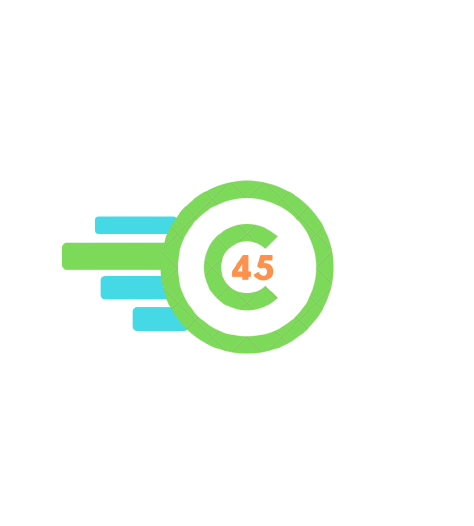Years ago, I read Malcolm Gladwell’s book “Outliers”. It basically talked about the fact that you need at least 10,000 hours to become efficient at anything, the idea has been twisted around the internet in a various number of ways.
In his book, he gave examples of notable figures who might’ve employed the 10,000-hour rule: The Beatles, Bill Gates, Hockey Teams, etc.
It’s an interesting book but the title and the main thesis can be misleading. Yes, you can gain a variable amount of progress if you’ve reached 10,000 hours in anything but the situation is more nuanced than that.
A lot of other things do play a part such as focus, genetics, environment, health, etc. All of us have unique strengths, but these strengths are kept hidden or it has become futile over time due to us not nurturing them or growing them.
Current System Is Flawed
If you ask most kids what he or she would want to become, you would see their faces light up and filled with enthusiasm. Ask them at 18 and the response is a bit different especially if you pay attention to their tone.
Through years of repetitive conditioning by society and an old educational system have beaten everything out of them. All that drive, energy, enthusiasm is gone. Life itself has now become mundane, “just grinding it out”.
I fell victim to this, I never knew what I wanted to become early on, I never had a clue but I know one thing, it wasn’t to feed the capitalistic regime deflecting my pursuit.
Learning about various topics, cross-pollinating ideas, and creating something out of it, is where I find my strength. Having that level of diversity across fields can help me to stay on top of changes and adjust my skills and knowledge as time goes on.
That’s what works for me and it took me years to tame it and direct that energy into the right fields which I can contribute to and bring a certain level of value.
It took more years than I could even imagine, at one point I was wondering if I was stuck in some sort of cul-de-sac. Overall, that’s what worked for me, but I am assuming your strategy is a bit different.
Probably you’re a specialist who is super competent in one field and you love what you do. Everyone is different, especially given the fact that our genetic combination has never and probably will never exist again in this universe under our current physical laws.
It’s important to become aware of what you can do and what works for you.
We are in an age where we want to be everything, I see entrepreneurs on social media trying to do everything at the same time. They are running three blogs, active on 10 social media accounts, YouTube channels, etc.
It is overwhelming and I am not sure if it’s even the right strategy in the beginning unless those roles have been outsourced which takes money.
Look at the focus, determination, and obsessiveness popular Youtuber Mr. Beast had in the beginning to grow his channel. It’s very interesting how he paid attention to everything to make a video, with no stone left unturned.
Focus On One Thing Then Scale
In an age where information is abundant and we can learn to become practically anything, we can be tempted to try and learn everything at once. It would be better to get good at one core skill in the beginning.
It’s important to be patient as it might take years to get this skill right, or months depending on where you are and the different variables in your life.
After you have reached a certain level of competency which is going to take a while, you can then scale up that skill by going deeper or you can wider by dipping your toe into another skill.
If you want to learn a new skill, don’t let it stretch too far away from your current skill as context switching between skills can add up as you still need to work on your core skill to keep it sharp.
Once you master that one skill, it will be easier to learn other skills. If you happen to find a mentor all the better as you can leverage their experience from years in that field which can practically become gold if you know how to apply it.
Exponential Return and Patience
I want to get back to the point of the 10,000-hour rule, depending on your field of choice it can take upwards of 10,000 hours or more to learn a skill: software engineer, chess, marketing, art, etc.
After a certain point, all those years of grinding it out will make sense and you will see an explosion in creativity, success, and intuition that wasn’t so apparent. The mountain climb which you started years ago wasn’t so far after all.
You have climbed those peaks, trek those unknown paths and finally at a certain level where your 1000ft viewpoint can allow you to see the entire map, system, and how it all fits together.
A good example of exponential return is Warren Buffet’s wealth albeit you can find other examples if you dig around on the internet. From my understanding and a lot of others, Warren Buffet’s strategy is basically, “focus”.
Although that is a bit of a reductionist, it’s easier said than done though, especially in our hypermedia world that we are living in presently.

Compress Time
Although at least 10,000 hours can be enough to gain some level of competency but not all 10,000 hours are equal. This all comes down to your focus and attentiveness while studying and practicing.
For example, let’s say that you are studying 5 hours a day to learn something which would take some other person 1 hour a day to learn. Due to the fact that, while he was studying, he wasn’t checking social media, talking to anyone was practically alone, focused as a sun ray through a magnifying glass.
That person basically compressed your 10,000 hours to 2,000 hours. That’s the power of compressing, you are reducing the time it took to learn something by actually learning something.
By actually practicing, deliberately, slowly chipping away at the waste and leaving nothing to chance. Another thing that you can do to compress time is following the 80/20 principle, depending on the field, you can learn 20% of the materials in the beginning to get 80% of the impact.
As you progress through your journey, you can then fill in the blanks as you go along. Lastly, you could even practice going deep by focusing on one area across a wide industry. When you are laser-focused on that one area, you will be the one someone needs, because you have separated yourself from the pack.
You also don’t need to stretch yourself; you can slowly chip away at your core skill, learning ever more stuff to become that would take experts in your industry years because you are super-specialized.
Getting A Mentor
Throughout history, persons tend to focus on the master and not the teacher who once taught that master. Behind every master is a teacher. Even though the master is more known, if you dig deep into the correlation of style between master and teacher, you can see that the master learned a lot from his teacher.
Mike Tyson had Cus” D’Amato, Leonardo Da Vinci had Verrocchio, Warren Buffett had Benjamin Graham who taught at Colombia Business School and had written the famous book, “Security Analysis: Principles and Techniques”.
If you read Warren Buffets’ biography, you can see that his ideas helped shape his investing hypothesis which he tested and brought good rewards. If you look at physicists, they had that one teacher in College or University who they learned a lot from and many others.
Thankfully today, due to access to information, emails, social media we can learn from our mentors, ask them questions and even model their ideas even if we had never met them.
Let Go Of Your Ego
When you are new in a field or learning something, you have to be humble and let go of your ego. I sometimes still have trouble with this issue, I might think I learn a topic after I thought I have learned it already. Yet still, I always miss certain points, we all do, but I always catch myself in the moment to be humble and realize that I still have a long way to go.
Let go of your ego in the beginning even while you are an expert, there is no limit to what you can learn. Open up your mind and absorb as much of the information as possible. If you have an ego, it will close often certain learning centers which can affect information retention and understanding.
Summary
In sum, even though the 10,000-hour rule seems plausible, the entire idea is more nuanced than that and I hope that I have addressed some of them. Don’t limit yourself either, even if you think you don’t have a degree, there are too many case studies out there.

















